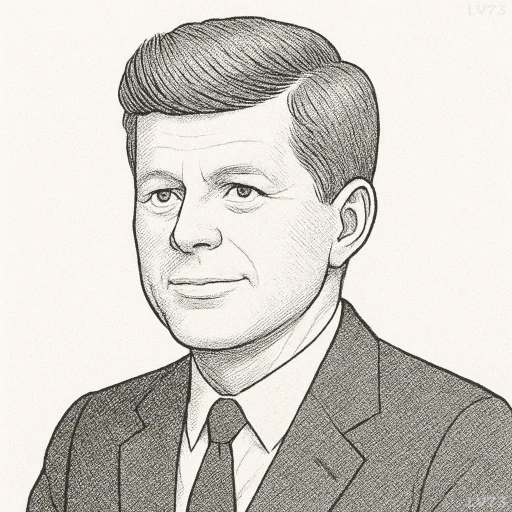“Geography has made us neighbors. History has made us friends. Economics has made us partners, and necessity has made us allies. Those whom God has so joined together, let no man put asunder.”

- May 29, 1917 – November 22, 1963
- American
- Politician
table of contents
Quote
“Geography has made us neighbors. History has made us friends. Economics has made us partners, and necessity has made us allies. Those whom God has so joined together, let no man put asunder.”
Explanation
In this powerful statement, John F. Kennedy eloquently expresses the deep interconnections between nations, particularly in the context of the United States and its allies. He outlines the four forces that bind countries together: geography, which brings nations into proximity; history, which builds shared experiences and bonds of friendship; economics, which creates interdependence through trade and cooperation; and necessity, which forges alliances in the face of common threats or challenges. The phrase “let no man put asunder,” drawn from biblical language, reinforces the idea that these bonds should not be broken by external forces or divisive actions. The underlying message is one of unity—that despite differences, the forces of nature, shared history, mutual interests, and strategic necessity create a strong, enduring partnership that should be respected and preserved.
Kennedy’s words were particularly relevant during the Cold War, a time when the United States and its allies, particularly in Western Europe, faced a common adversary in the form of the Soviet Union and the spread of communism. The alliance between the U.S. and its European partners, as well as with other nations like Canada and Japan, was seen as critical for maintaining peace and stability in a world on the brink of nuclear conflict. Kennedy, as a leader navigating the tense political and military landscape of the 1960s, recognized the importance of these alliances and understood that the bonds of mutual interest—whether economic, military, or cultural—would form the foundation for the defense of democracy and freedom. His statement was both a tribute to the unity that had been achieved and a call to safeguard these connections in the face of global threats.
In the modern era, Kennedy’s message about the power of alliances and cooperation continues to resonate. Global challenges such as climate change, pandemics, and economic interdependence require countries to work together in ways that are no longer defined by simple geographic proximity but by the mutual benefits of collaboration. The geopolitical landscape has evolved, but Kennedy’s reminder that countries can form lasting relationships based on common interests and shared goals still holds true. Whether it’s through trade agreements, military alliances like NATO, or international institutions like the United Nations, countries continue to work together in complex partnerships. Kennedy’s emphasis on the strength of these bonds is a reminder that despite challenges, unity—whether in times of war or peace—is crucial for addressing the global issues that affect all nations.
Would you like to share your impressions or related stories about this quote in the comments section?

